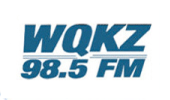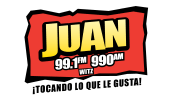Patoka Sportsman 11-23 & 11-24-19
Patoka Sportsman 11-23 & 11-24-19
The Indiana CheckIN Game system allows hunters and trappers to check in their harvested game from any device connected to the internet. You will receive a confirmation number that must be written down on a temporary transportation tag for the harvested game species (turkey, deer, and/or river otter). Be sure to check your information to ensure accuracy before submitting the check-in. Deer and wild turkey must be checked in within 48 hours of harvest, and river otters must be checked in within 24 hours. Have your customer ID (CID) and harvest information ready.
Do not re-enter the correct information if you have entered incorrect information into the CheckIN Game system; each submission is considered a harvested animal. Email your confirmation number, name, and changes that need to be made to INhuntfish@dnr.IN.gov. To view all game that was previously checked in with the CheckIN Game system, you will need to set up an account through our online system. You can purchase licenses, check in game, complete your HIP registration, and make a donation through your account. Hunters still have the option of visiting traditional check stations where a confirmation number will be provided to hunters to place on their temporary transportation tag. There is also a phone-in option at 1-800-419-1326 for a $3 fee (Visa or Mastercard only).
County bonus anterless quotas have been reduced to a maximum of two in areas impacted by EHD.
Counties that had a county bonus anterless quota of three or four, have now been reduced to two. Counties that already had a county bonus anterless quota of two or fewer have not changed. The effects of the harvest and EHD will be evaluated after the season and additional changes may be made the following year if necessary.
The Special Antlerless Firearms Season is only allowed in counties marked in green on the county bonus antlerless map. These counties previously had a county bonus antlerless quota of four, but were reduced to a maximum of two.
The deer firearms license allows one deer to be taken with that license, and it must be a buck. If you want to take a doe with a firearm during the firearms season, a bonus antlerless license, resident youth combo hunt/trap license, deer license bundle, or lifetime license is required. The doe counts toward that county’s bonus antlerless bag limit for resident youth, lifetime, and bundle license holders. Some DNR properties have restrictions on bonus antlerless deer that can be taken.
Carcasses of deer and other wild animals that are lawfully taken cannot be dumped in streams or other bodies of water. Dumping dead deer and other wild animals in a waterway is considered littering and is a criminal offense punishable by a fine. Rotting carcasses in a waterway can also affect water quality for those downstream. Carcasses should not be burned because this can cause air pollution. Carcasses shouldn’t be left in the open for scavengers and others to see without permission from the landowner. We recommend all discarded carcasses and unwanted animal parts be bagged, placed in your trash, and sent to a landfill.
The hunters for the hungry began on Oct. 1. We will have the same four processors involved. They include Sanders Processing, Ferdinand Processing, Ohio Valley Custom Deer Processing in English and Cannelburg Processing. If you legally harvest a deer and would like to donate to our Hunters for the Hungry, administered by the Dubois County Sportsmen’s Club, you can take it to any of the processors mentioned. You must donate the entire deer. If you donate more than once each time you donate your name will be put into a drawing to win a firearm donated by Dr. Greg Gordon at Jasper Optical Lab.
Call TIP if you see, hear or learn about poaching or another fish and wildlife rule violation. If your “TIP” leads to an arrest, you may receive as much as a $200 reward, and you can remain anonymous. Call 1-800-TIP-IDNR, 24 hours a day, 7 days a week. As of November 14 there have been 29,027 deer harvested statewide.
A banded bald eagle recovered near Vincennes gave DNR personnel a chance to measure the success of bald eagle reintroduction in Indiana over the past 20 years.On Sept. 30, a wild bird rehabilitator responding to a call about an injured bald eagle arrived to find the bird deceased. A closer look revealed that the eagle wore two bands – one on each leg – inscribed with numbers and a letter. After the bands were reported to ReportBand.gov and DNR state ornithologist Allisyn Gillet was contacted, parts of the eagle’s history were revealed.
Bald eagle H81 was banded as a nestling at Hovey Lake Fish & Wildlife Area on April 20, 1998. That year, DNR biologists were closely tracking nesting eagles to monitor how the population was growing after the successful bald eagle reintroduction program.
The year H81 was born, Indiana had 11 successful eagle nests, and 20 eaglets survived long enough to leave the nest. Indiana’s eagle population has been steadily growing, and in 2019, over 300 bald eagle nests were reported.
The bald eagle reintroduction program was the first endangered species restoration project initiated by DNR Nongame and Endangered Wildlife staff. This project and ongoing research would not be possible without donations to the Indiana Nongame Wildlife Fund, the main funding source of all nongame and endangered species research and management.Those interested in donating to the Indiana Nongame Wildlife Fund can donate online at on.IN.gov/nongamewildlifefund. For more information about bald eagles, see wildlife.IN.gov/3383.htm.
You can help the DNR improve fish habitat at Patoka Lake during a volunteer habitat structure build day. As reservoirs such as Patoka Lake age, the number and type of hiding places for prey fish decrease. Fish habitat structures built out of pallets are one option to improve habitat complexity at Patoka Lake. On December 7th, 2019, a pallet structure build will take place from 12:30 to 4:30 p.m. ET in the parking lot of the Patoka Lake office. Orientation will take place at 12:30; it is not necessary to stay for the entire event. Pallets and other building materials will be provided. Please bring cordless drills, work gloves, and protective eyewear if you have them, but tools are not required to attend. We will be working outside so please dress accordingly (long pants and close-toed shoes). Bring snacks and plenty of drinking water. Register for this event by signing up as a volunteer with DFW. Visit on.IN.gov/dfwvolunteer and follow instructions under “Sign up to Volunteer.” Once you are signed up, please visit https://bit.ly/2NiJ6wB and click “Patoka Lake Habitat Build” to register for the event.




